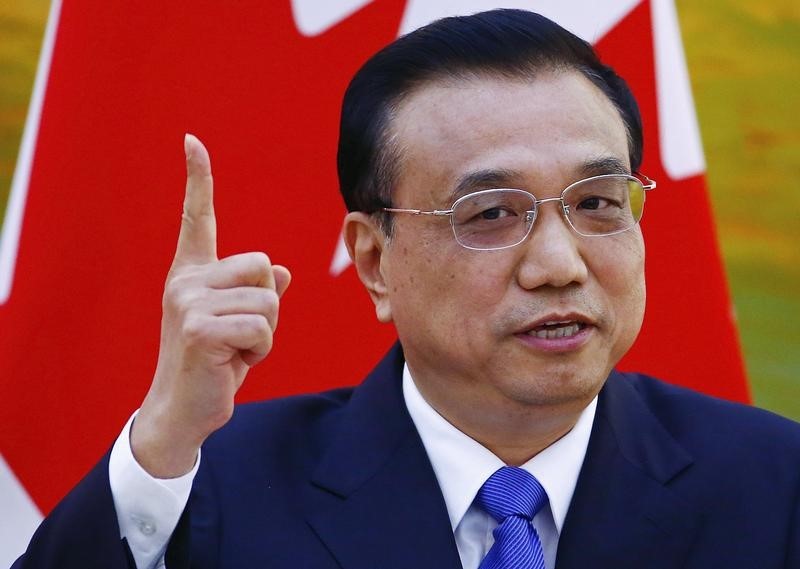BEIJING (Reuters) - Chinese Premier Li Keqiang heads to Serbia, Thailand and Kazakhstan next week, but three of the most touchy topics he could encounter are off the agenda, including the fate of Muslims from western China who have fled to Southeast Asia.
Li's trip, from Dec. 14 to 20, also takes in summits with Eastern European, Central Asian and Southeast Asian leaders.
Sensitive issues Li could encounter range from the Uighurs who have left China's violence-prone region of Xinjiang, to Thailand's military government and the U.S. military's accidental bombing of China's embassy in Belgrade in 1999.
"Premier Li's visit to Thailand ... is mostly about trade and economic cooperation," Vice Foreign Minister Wang Chao told reporters on Friday, when asked if Li would talk about the Uighur situation or urge Thailand to return to civilian rule, as many Western nations have.
Li will attend a Bangkok summit of the leaders of Cambodia, Laos, Myanmar, Thailand and Vietnam aimed at strengthening economic ties.
Chinese officials in Thailand have identified numerous Uighurs among the individuals Thai police rescued from a people-smuggling camp, and those confirmed to be from China will be sent home, a state-run Chinese newspaper said last month.
Thai police told Reuters about 200 people rescued in March were believed to be Uighurs, many of whom chafe at Chinese government curbs on their culture and Muslim religion.
Hundreds of people have been killed in unrest in Xinjiang in the past two years, prompting a crackdown by Chinese authorities.
Small numbers of Uighur people have begun trickling out of China to Southeast Asia. They are believed to go overland into Laos or Myanmar, and then onwards to Thailand and elsewhere.
Wang declined to comment further when pressed on the subject of the Uighurs, repeating his previous statement.
He added that Li had no plans for a ceremony to commemorate three Chinese killed in the Belgrade embassy bombing, during what will be the first visit by a Chinese premier to Serbia in 28 years.
"According to the current agenda, we have arranged no such activities," Wang said. "But we always cherish the memories of martyrs."
The bombing, which many Chinese still believe was intentional sparked violent anti-NATO demonstrations across China and brought ties with the United States close to breaking point.

China and the United States agreed last month to improve ties following months of tension over everything from commercial disputes to China's territorial claims.
(Reporting by Ben Blanchard; Editing by Clarence Fernandez)